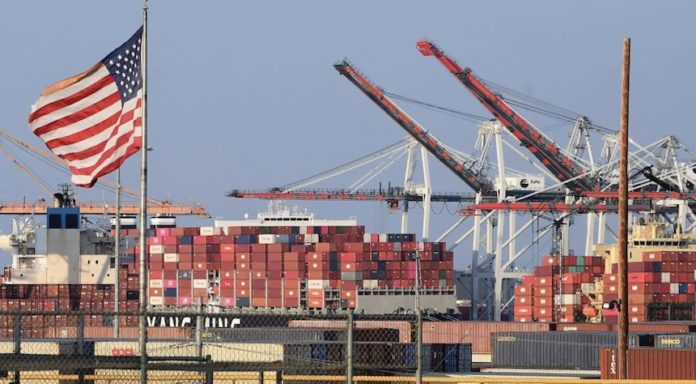CNBC’s Monday report stated that ocean logistics companies are canceling their orders because of declining consumer demand.
CNBC reported that logistic managers have seen a 20% drop in ocean freight orders since the Russian invasion. This is because the top economies are struggling with inflation, supply chain crises, and geopolitical tensions. Uncertain consumer demand and the accumulation of inventory are two reasons for this drop.
“Inventory levels are high as consumerism shifts further to off-price,” United National Consumer Suppliers CEO Brett Rose told the outlet. “Bigger brands are very conscious of current season and trends. A Bloomingdale consumer doesn’t want last season’s shoes or handbags. These items will be attractive to consumers of retailers like T.J. Maxx, Marshalls, Ross Stores.”
CNBC reports that falling demand has affected many industries, from machinery and industrials to housing and clothing. The World Bank’s June forecasts predict that the world’s growth rate will fall from 5.7% to 2.9% in 2022. This is a decrease in growth rate from January’s forecasts.
“The war in Ukraine, lockdowns in China, supply chain disruptions, and the risk of stagflation all have an impact on growth. It is important to encourage production and avoid trade restrictions. ”
Companies are canceling voyages to meet lower vessel space demands. HSL Logistics informed clients that it had reduced vessels by nearly 50%. DHL Ocean Freight, however, told CNBC that vessel space demand is expected to remain flat through October.
Increased vessel congestion is a problem in ports along the east coast of America. This is due to increased vessel congestion in ports on the east coast of America.
Central banks all over the globe are decreasing their target interest rates to stem rising inflation. This is despite lower consumer demand. This results in lower economic activity and higher borrowing costs.
After two rate increases in June and July, the Federal Reserve Bank of the United States raised the target federal funds rates by 0.75 percent last week. This caused panic among stock market investors. Wall Street was further scared Monday by rumors that Credit Suisse, a Swiss bank for investment, could go under.
To stimulate the economy during the recession-induced lockdown, the Federal Reserve initially established a target interest rate of near zero. In response to the uncertainty in demand caused by the new contractionary monetary policy regime, they bought government bonds from the market.




